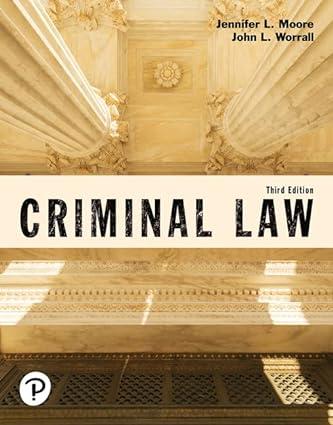False pretenses is shorthand for the crime of obtaining property by deception. It is distinct from larceny
Question:
• False pretenses is shorthand for the crime of obtaining property by deception. It is distinct from larceny because of the deception and/or false representation involved.
• Forgery is the false making or material altering of a document with intent to defraud. Uttering refers to passing a forged document.
• Identity theft occurs when someone uses or attempts to use sensitive personal information of another person with intent to defraud.
• Intellectual property is a blanket term describing the many varieties of products attributable to human intellect. Examples include copyrights, patents, trademarks, and trade secrets, among many others. Theft of intellectual property is a crime.
• Given the complexity of theft laws (and the many varieties of theft), several states have increasingly begun to consolidate their theft statutes into one all-encompassing law.
Questions:-
1. Explain the difference between forgery and uttering.
2. Identify four types of intellectual property.
3. What are some of the pros and cons of theft law consolidation?
Step by Step Answer:






